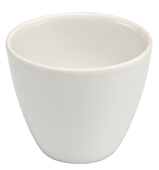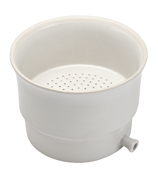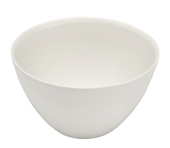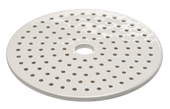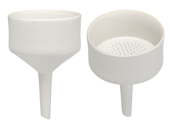Porcelain Labware
Why choose porcelain for use in your chemistry lab?
Due to its inherent properties, porcelain labware is widely used in the chemistry laboratory. It has excellent resistance to all reagents except hydrofluoric acid, and is highly resistant to thermal shock while having a very low coefficient of expansion.
The average coefficient of expansion from 20° to 200°C is 3.56 x 10-5 gradually increasing to 4.69 x 10-5 at 1000°C. To prevent thermal stress cracks on porcelain ware do not exceed a heating/cooling rate of 200°C per hour.
Prolong the Life of Porcelain Products
-
Follow gradual heating/cooling rates
-
Use an oven or hot plate and an intermediate step when quicker heating/cooling rates are required
-
Avoid contact of heated ware with a cold surface
-
Carefully inspect labware prior to each use and do not use any product that appears defective

